- Getting Started
-
by k.mammasis
There are several factors that can cause iron levels to drop. Here are some common causes:

Inadequate iron intake
If you don’t consume enough iron in your diet, your body may not be able to produce enough hemoglobin, which can lead to iron deficiency anemia. At MILESTONE®, we created a medical grade and synergistic functional food formula that combines the unique health properties of the pomegranate, Vitamin B12 and Iron.
Blood loss
Blood loss can also lead to iron deficiency anemia. This can occur due to heavy menstrual bleeding, childbirth, gastrointestinal bleeding (such as ulcers, tumors, or inflammatory bowel disease), or injury.
Pregnancy
Iron is a crucial nutrient during pregnancy as it is required to make hemoglobin, which is necessary for delivering oxygen to the developing fetus. Pregnant women require more iron to support the growth of the fetus. Therefore, it is important for pregnant women to consume iron-rich foods to prevent iron deficiency anemia. It’s also important to consume vitamin C-rich foods alongside iron-rich foods, as vitamin C helps the body absorb iron. Good sources of vitamin C include pomegranate, citrus fruits, strawberries, kiwi, broccoli, and red peppers.
Certain medical conditions
Medications
Some medications, such as proton pump inhibitors and antacids, can interfere with the absorption of iron from food, and therefore it can cause iron levels to drop.
Chronic kidney disease
People with chronic kidney disease may develop anemia due to the kidneys’ reduced ability to produce erythropoietin, a hormone that stimulates the production of red blood cells.
Heavy exercise
People who engage in heavy exercise may lose iron through sweating and the breakdown of red blood cells.














